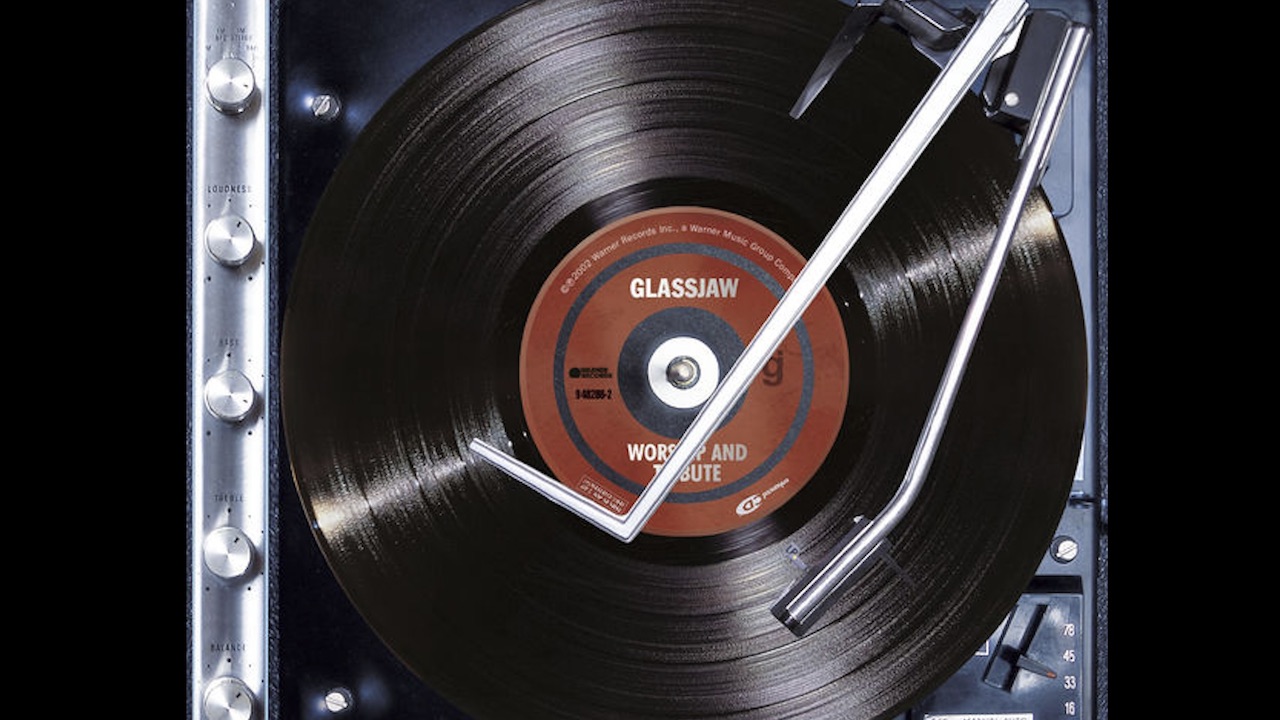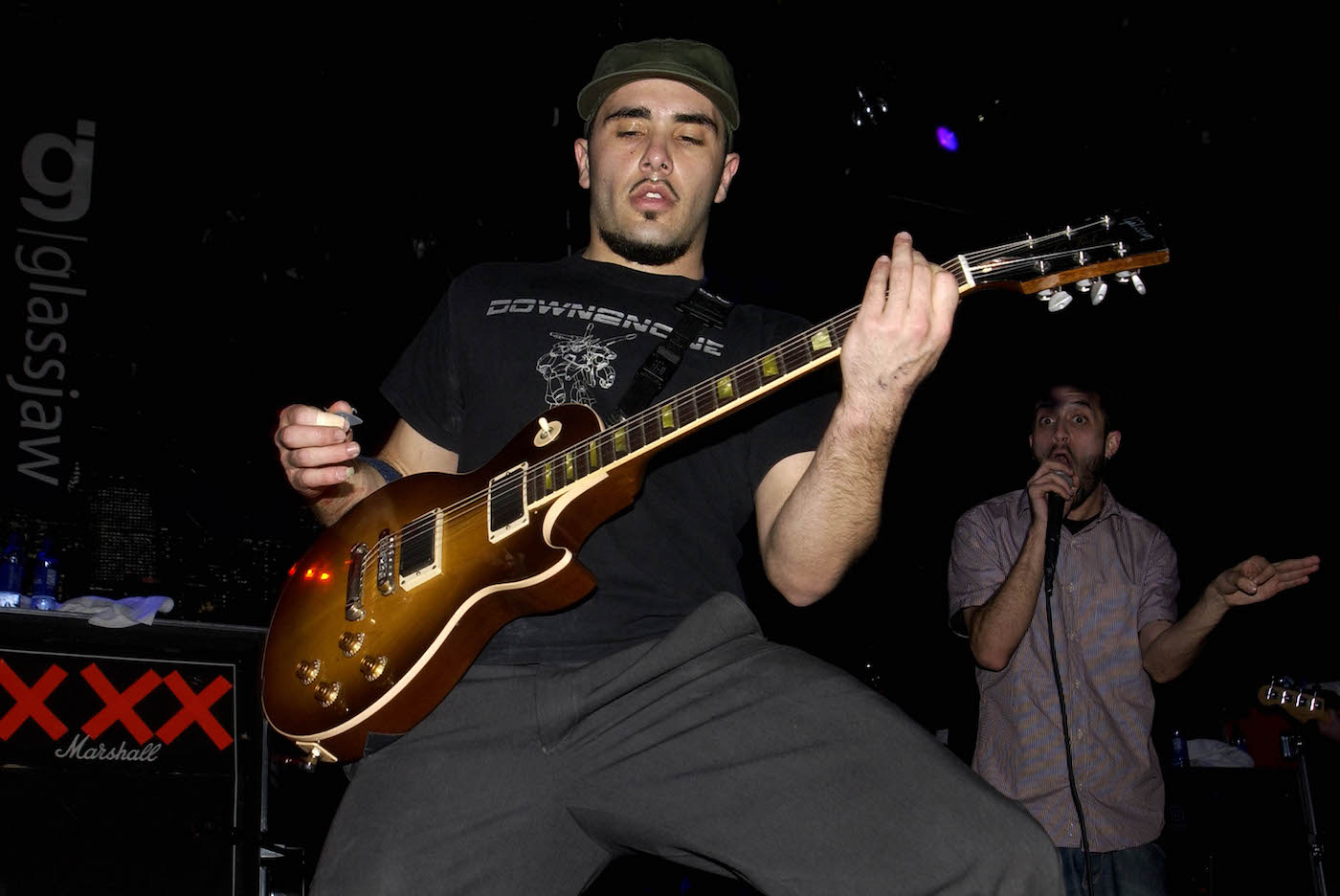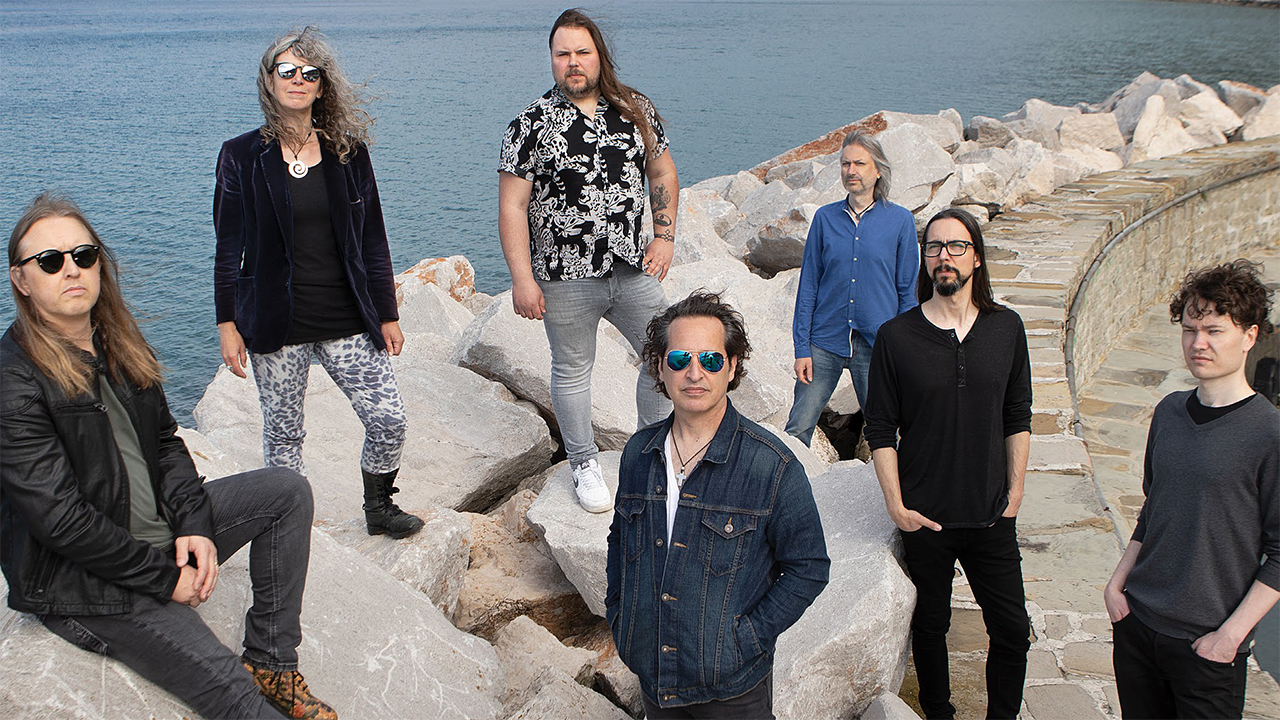Glassjaw's Worship and Tribute at 20: saluting a post-hardcore masterpiece
Glassjaw's superb second album Worship and Tribute turned 20 on July 9, but sonically it hasn't aged a single day

Select the newsletters you’d like to receive. Then, add your email to sign up.
You are now subscribed
Your newsletter sign-up was successful
Want to add more newsletters?
As we entered the new Millennium, the emo and post-hardcore boom that would flourish in the first half of the 2000’s had yet to really pick up steam, commercially speaking.
Whilst artists such as Quicksand and Drive Like Jehu played the major label game that saw them briefly obtain a cult audience in the first half of the 90’s, and US indie labels Jade Tree and Revelation Records were putting out supreme melodic hardcore albums by Texas Is The Reason, Sensefield, The Promise Ring, Garrison and more, as we moved toward the year 2000, this music’s fanbase was predominately comprised of underground punk rock aficionados.
There was one band, however, that seemed to slightly buck the trend; Long Island, New York quintet Glassjaw were one of the few bands that had actually been pushed beyond specialist music publications at the tail end of the '90’s, thanks to their acerbic, unhinged and absolutely furious 2000 debut Everything You Ever Wanted to Know About Silence, released on Roadrunner Records, home of Slipknot, Machine Head, Sepultura and more.

Roadrunner had an eclectic roster, but, really, it was chiefly considered a metal label. Glassjaw, with their clear sense of melody, short hair, thick rim specs and college rock look, clearly, were not metal, but on EYEWTKAS they were heavy. Very heavy. Frontman Daryl Palumbo’s Mike Patton-esque yelps, piercing screams and pained wails that detailed his, often violent, trauma and heartbreak on the album were matched by guitarist Justin Beck and Todd Weinstock’s pummelling hardcore riffs. It was weird, wild, eclectic and, frankly, no one quite knew what to do with them, for Glassjaw were too heavy and abrasive for the emo crew, but too sensitive and angular for the nu-metal fans.
Roadrunner sent the band out on tour, first with Deftones, which felt like a decent fit, but then as support to Max Cavalera’s Soulfly, not so much. Feeling misunderstood and frustrated with their treatment by the label, and with Palumbo’s Crohn’s disease making touring a frustratingly stop-start affair, Glassjaw took some time away to regroup and write.
They secretly entered the studio in early 2001 with producer Ross Robinson (Korn, Slipknot, Amen) to create what would be their second album. The vibe from the first record was markedly different, with Glassjaw determined to show a more positive tone from EYEWTKAS’s cathartic nature, and to showcase the breadth and scope of their influences on a more rounded and complete collection.
The result was a landmark of the genre. On Worship and Tribute Palumbo’s love of new wave acts like Elvis Costello and Squeeze were present on the louche and loungy Must’ve Run All Day and The Gillette Cavalcade of Sports, while first single Cosmopolitan Blood Loss is both angry and slinky like Rage Against the Machine fronted by INXS’s Michael Hutchence. The uber-posi youthcrew style of New York influences Youth of Today and CIV is represented on the breakneck Radio Cambodia, the eclectic Bad Brains-style thrashing riffs of Pink Roses and Mu Empire satisfy the tastes of those looking for those heavy thrills, and the woozy, post-metal of Trailer Park Jesus slurps up Deftones, Janes Addiction and Helmet and blurts it all back out at once.
From top to bottom Worship and Tribute oozed class and ingenuity: less intense than their debut, but paced expertly, it kept the energy from before but channeled it into so many more interesting areas. Glassjaw could still rage with the best of them, but they were also capable now of restraint, beauty and reflectiveness.
It also sounded like a superstar album. Where Everything... was a caustic wrecking ball of noise, Worship and Tribute had the kind of timeless, mammoth production that made every song feel as if it were made for stadiums, festival stages, MTV and commercial radio, whilst also remaining truly alternative. Never before had post-hardcore struck the balance between punk grit and pop sugar so masterfully. There literally was nothing else like it.
The latest news, features and interviews direct to your inbox, from the global home of alternative music.
Feeling they had something special on their hands, the band left Roadrunner and spent the remainder of 2001 shopping the record around various labels, before eventually signing with Warner Bros.
By this point more and more people were becoming intrigued with the idea of post-hardcore. Glassjaw had done their own bit of pushing at the door, but it creaked further as music fans looked for music on the margins. It seemed like everyone discovered Refused’s mind-blowing The Shape of Punk to Come Thursday’s Full Collapse was a critical hit, whilst the buzz around At The Drive In’s 2001 masterpiece Relationship of Command allowed them to invade TFI Friday and Later..., before the hype - and a shitload of Class A drugs - destroyed their momentum and saw the El Paso quintet implode.
It meant that, when Worship and Tribute dropped on July 9, 2002, people thought they had more of a handle on exactly what Glassjaw were. The reviews reflected the growing interest in post-hardcore, with the rock press universally positive: even the NME, notoriously difficult for rock bands to please, called it “the greatest ‘underground breakthrough’ album since Deftones.”
It was something of a sleeper hit, only peaking at number 82 on the US Billboard Top 200. But the album was subsequently given a significant boost thanks to its second single, Ape Dos Mil.
The song, along with its bizarre video, which showed the band playing alongside a clown couple going about their day in a typical suburban home, can lay claim to be the first true post-hardcore crossover hit. A jazzy, laid-back drum tattoo drives the song alongside a bassline that could have been plucked from either The Police or Red Hot Chili Peppers at their most casual, the guitars don’t riff, they sparkle and jab, Palumbo’s breathy, almost flirtatious, vocals in the verses give way to a chorus that crowbars its way straight into your psyche halfway through the first listen, and its climax it is one hell of a dizzying thrill.
As post-hardcore began to trade blows with a flagging nu-metal scene, it felt like something of a landmark; these bands had always managed to score critical acclaim and underground cool points, but Glassjaw showed that now they could actually do hit singles, as it peaked at number 7 on the UK rock chart.
After that, the floodgates opened: Funeral for a Friend, Finch, Thrice, Alexisonfire, The Used, From Autumn to Ashes and the rest all filed in and turned post-hardcore into the dominant genre in rock for a few years. Pretty much all of them hailed this album as an essential component to their work.
As with most of these things though, you couldn’t mess with the originators, and listening to Worship and Tribute 20 years after its release it is hard to think of a more instantly recognisable and idiosyncratic band from this genre.
Pressing play on the album after some time away from it, you see why people still care so deeply about the band, there was nothing like it 20 years ago, and there really hasn’t been anything comparable since.
Happy birthday to a true one off.

Stephen joined the Louder team as a co-host of the Metal Hammer Podcast in late 2011, eventually becoming a regular contributor to the magazine. He has since written hundreds of articles for Metal Hammer, Classic Rock and Louder, specialising in punk, hardcore and 90s metal. He also presents the Trve. Cvlt. Pop! podcast with Gaz Jones and makes regular appearances on the Bangers And Most podcast.
